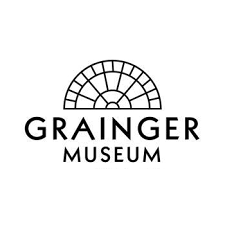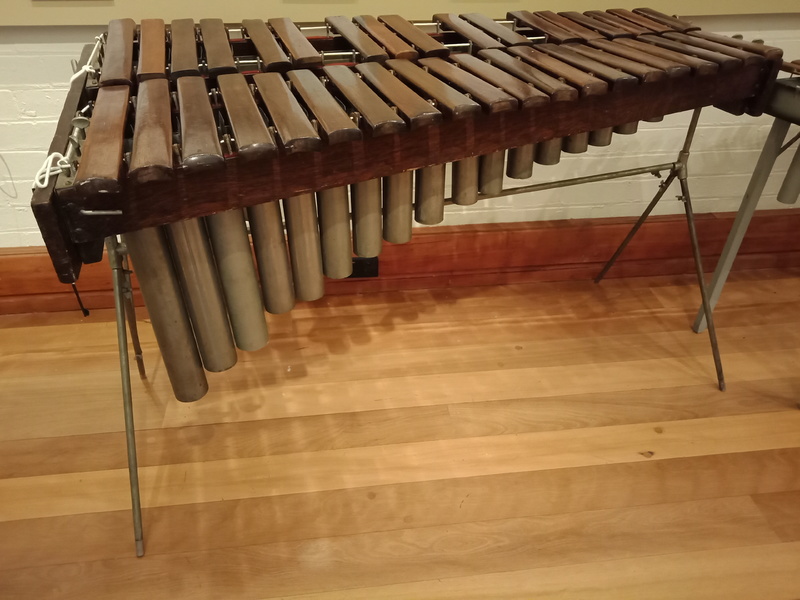Marimbaphone, c. 1903-1910
Dublin Core
Title
Marimbaphone, c. 1903-1910
Description
Deagan gave the name ‘Marimbaphone’ to a series of models equipped with rotating or tilting frames, and bars with concave ends. They came in various sizes and were made with both rosewood and steel bars. The purpose of this feature was to play the instrument with a bow as well as mallets. This Marimbaphone has a three octave range from E to E but the top and bottom notes are placed on the chromatic frame to reduce the length of the instrument for ease of transport. This practice was common with the early designs.
J.C. Deagan wrote to Percy Grainger of the innovations of his xylophone family: “You know very well that there is NO violin nor piano that can play a very rapid movement, clear & clean cut, as our good xylophones…” Grainger was particularly keen to explore the lower octaves of the wooden marimba: “...as I particularly wish to use this instrument as a sort of bass to the xylophone, or as a tenor between the Nabimba & xylophone, therefore I would like to ask you to let me have a generous range, especially in the lower octave”. This instrument is made from rosewood, oak, steel, and brass.
J.C. Deagan wrote to Percy Grainger of the innovations of his xylophone family: “You know very well that there is NO violin nor piano that can play a very rapid movement, clear & clean cut, as our good xylophones…” Grainger was particularly keen to explore the lower octaves of the wooden marimba: “...as I particularly wish to use this instrument as a sort of bass to the xylophone, or as a tenor between the Nabimba & xylophone, therefore I would like to ask you to let me have a generous range, especially in the lower octave”. This instrument is made from rosewood, oak, steel, and brass.
Source
Grainger Museum Collection
Date
c. 1903-1910
Identifier
00.0066


